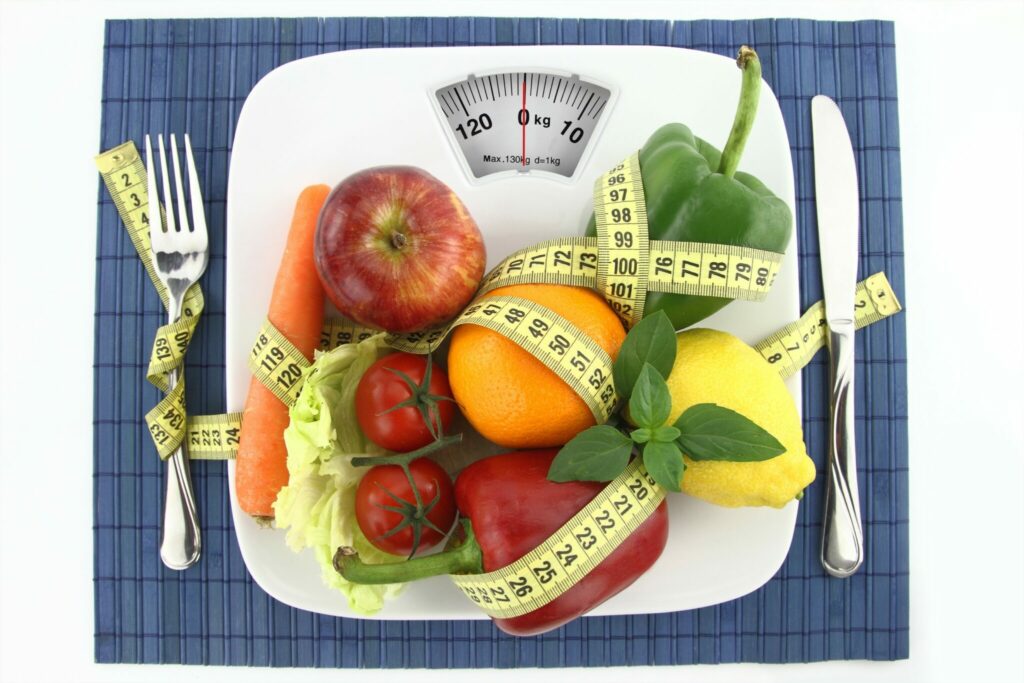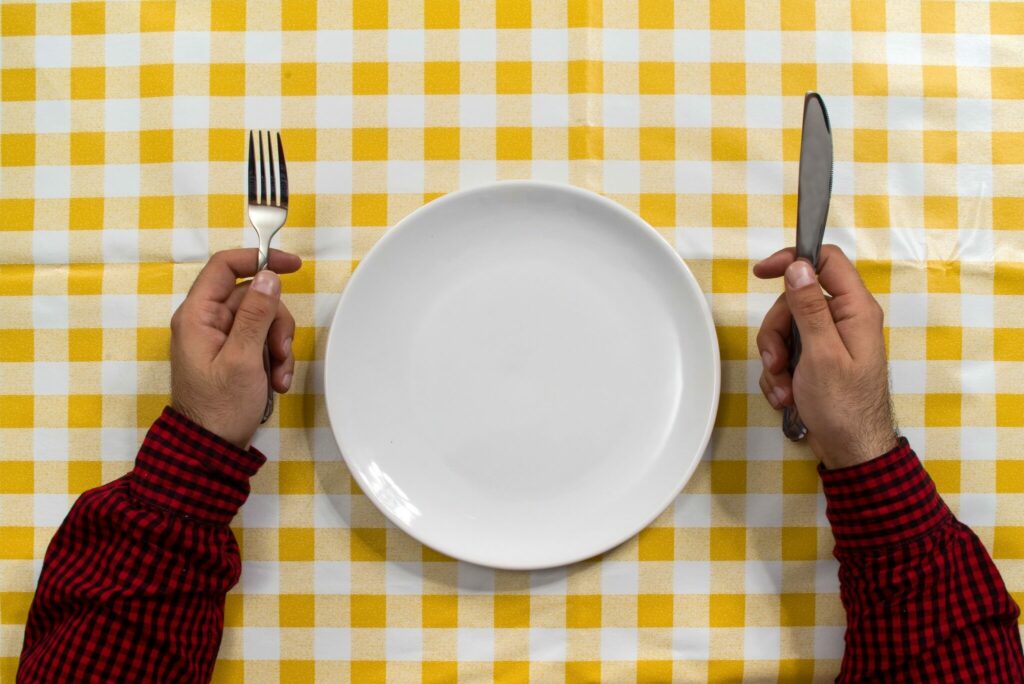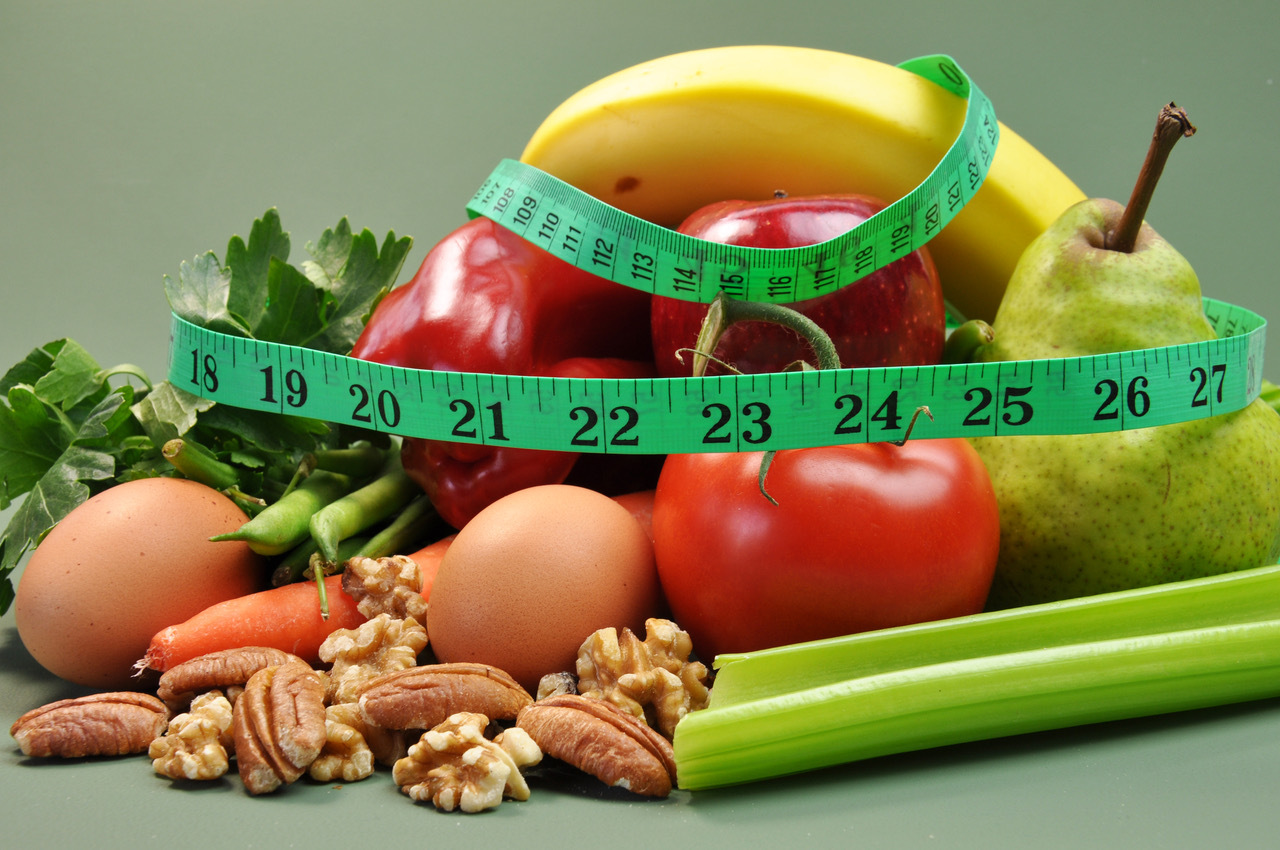6 Weight Loss Ideas that are holding you back
Losing weight – and keeping it off – is an on-going challenge for many people.
It’s a challenge that’s made more difficult by the unhelpful ideas that persist in the weight loss world.
Here are 6 weight loss ideas that would be helpful to reconsider.

1. The Diet Mentality
The diet mentality is the idea that you first go on a diet until you get to where you want to be. Then you do something more flexible and sustainable.
The problem with this is that the set of skills you need to follow a diet is typically very different to the set of skills you need to stay on track.
Fat loss is easy.
It’s behaviour change that’s hard.
Succeeding at a diet requires being highly motivated to follow clear rules. Rules that can actually make life straightforward.
Sticking with something over the long-term is a different proposition. Now we’re talking about behaviour change.
Now we’re talking about nuance. Having some biscuits but not-too-much can be trickier than having no biscuits. More personal responsibility is required, more awareness, more flexibility.
Rather than simply following rules, consider developing the skills and building the habits of someone who has a happy and healthy relationship with food.
SOLUTION: Recognise that fitness is forever. If you stop, it all goes away. So rather than aiming for a short-term fix, try to focus on practising the skills and building the habits that reflect the type of person you want to be.
2. Good vs Bad Foods
Isn’t it odd that people refer to themselves as being “good” when talking about their diet?
The moralising of food is an idea that makes it harder to have a healthy, happy relationship with food and with your body.
And it’s something that’s deeply rooted in our culture.
We have sinful, indulgent, guilty pleasures and we have clean, green, healthy, foods. Some foods are inherently fattening others are diet-friendly, slimming foods.
Except it’s not true.
Whether you gain or lose weight comes down to calorie balance. Your food choices do matter – it’d be wise to consider quantity and quality – but there’s not a single food that can make you gain or lose weight on its own.
It’s about the overall context of your diet.
SOLUTION: Choose better labels. Rather than simply trying to avoid “bad” foods, consider using these four, emotionally neutral, labels:
- How calorie dense is the food?
- How nutrient dense is the food?
- How satiating is the food?
- How enjoyable is the food?
From there, practise trying to strike the balance with a diet that satisfies you, tastes good, nourishes your body and – if weight loss is your goal – has you in a calorie deficit.

3. All or Nothing
Often a consequence of the good-vs-bad-foods-idea is the all or nothing approach.
We could also call it perfectionism.
It goes like this:
- You set up some diet rules for yourself.
- You inevitably break the rules. (Inevitable because if you are “good” you deserve a treat and if you feel bad you need a pick-me-up!)
- You press the self-destruct button and abandon all helpful behaviours until the next fresh start.
- You start over vowing to be more disciplined this time.
And so the cycle continues…
There’s a general misconception around what it takes to live a fit and healthy life. People think it requires giving up the foods they enjoy and living perfectly – whatever that might mean. It doesn’t. You can be fit and healthy and also be lazy and enjoy cake. It’s about finding the right balance for you.
SOLUTION: Perfectionism feels like the answer but in many cases is actually the cause of food-related challenges. The solution instead lies in practising flexibility.
4. This can’t be fun.
For many people, eating well and exercising is seen as chore.
Anyone who exercises consistently is either really motivated …or crazy.
Anyone who eats salads must be a health freak …or on a diet.
The idea is that “healthy” choices are not enjoyable. They therefore require buckets of motivation and a lot of sacrifice.
This idea reinforces the diet mentality (this will suck but I’m only doing it for 6 weeks before my holiday).
And it encourages the idea that you need someone else to give you a “kick up the arse” or “whip you into shape”. i.e. Someone to make you do the things you don’t want to do.
But what if you could actually enjoy the process?
It’s true: exercise can be uncomfortable – particularly at the beginning. And being a bit more disciplined around your diet takes conscious effort.
But…
Like with some foods and alcohol, fitness is an acquired taste. It may take some time to develop your palate, but you can definitely grow to enjoy your new habits!
SOLUTION: Try to view fitness is an acquired taste and be open to enjoying the process. Seek out interesting recipes. Try to find a fun and supportive environment to exercise in. Gamify the process if you can.

5. Starving is winning
You’re a grown adult. Chances are you need more than a cup of soup for your lunch.
Many people, when trying to lose weight, see it as a game of whoever eats the least wins.
That’s a game that has no winners.
True, to lose weight, it is likely that you’ll have to feel some hunger some of the time. But as you probably know from experience, the bigger the restriction, the greater the likelihood of a binge.
Yes, you want to be in a calorie deficit, but push it too far and you can expect a lot of cravings.
Although preferences vary, a helpful place to begin is to ask yourself if you’re having a sensible breakfast, lunch and dinner.
Most people will be able to reduce calories by limiting their snacking. It’s usually not necessary (or helpful) to consider cutting back heavily on entire meals.
SOLUTION: Eat like an adult. Aim for 3-4 balanced meals each day without snacking. At each meal, ask yourself if it looks like a sensible, adult portion of food or if might be a bit too much or too little.
6. Weight is everything
To lose weight, you need to be in a calorie deficit over a given period of time (i.e. consuming fewer calories than you expend).
It also works the other way around: if you step on the scales and you didn’t lose weight, all it means is that you were not in a calorie deficit.
It doesn’t say anything else about you. Nothing about how many workouts you did. Nothing about the skills you may have developed or other progress made.
It certainly doesn’t say anything about your worth as a person. Nothing about your career or family or social life.
It simply means your body did not average a calorie deficit in the given timeframe.
That’s all. Take the feedback and – if losing weight is still important to you – adapt and go again.
Speaking of timeframes, weight fluctuates day-to-day so it can be helpful to zoom out. Consider weighing daily and going by the weekly average.
If you find it too hard to detach from the emotion, you might want to give yourself a break from the scales and focus on something else for a while.
SOLUTION: Consider tracking a wider range of metrics rather than relying solely on your weight to gauge your success.
Try to make a distinction being process metrics (things you can actually do) and outcome metrics that are the result of what you do (e.g. the number on the scales). There is value in tracking both but recognise that can only control what you do.
Examples of process metrics you could track include:
- Organisation – planning, shopping, prepping habits.
- Food habits – eating more protein, more veggies, less booze.
- Eating skills – eating slowly, mindfully, at set times, without snacking.
- Physical activity – going for regular walks.
- Exercise – consistently doing workouts.
- Recovery – aiming for a set bedtime, planned restorative activities.
Outcomes could include:
- Mood
- Energy levels
- Sleep time/quality
- Average weekly weight
- Total weekly step count
- Strength
- Cardio fitness
- Body fat percentage
- Muscle mass
- Circumferences




Sorry, the comment form is closed at this time.